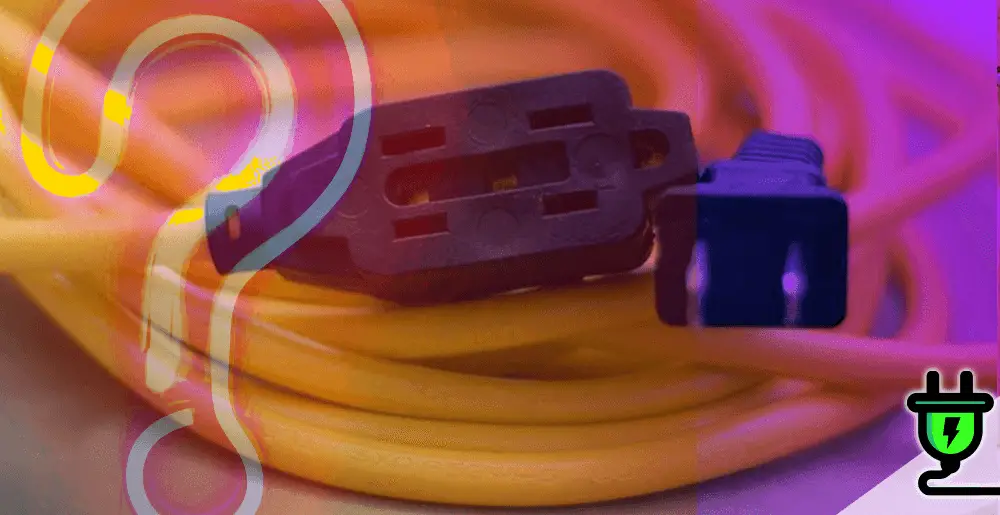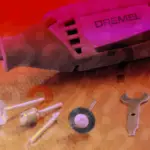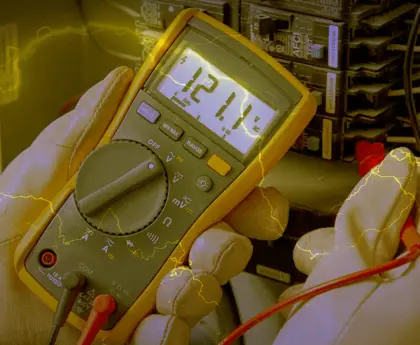Are you unsure about the right extension cord gauge to use for your power tools? This is a common confusion among tool users, especially since choosing incorrectly can adversely affect both safety and efficiency. So, what gauge extension cord for power tools should you use?
Generally, for most household power tools, a 12 to 14 gauge cord is suitable for up to 50 feet. For longer distances or heavier-duty tools, a thicker gauge like 10 may be required. Always refer to the tool’s manufacturer recommendations and check the tool’s amperage to ensure compatibility.
This guide will help demystify extension cord gauges and guide you in making an informed decision based on factors like amperage rating, tool wattage, and cord length. Let’s dive in for more insights!
Choosing the Right Extension Cord Gauge
When considering what gauge extension cord for power tools you need to consider 3 main factors. These are the amperage rating, tool wattage, and cord length when selecting the appropriate gauge size for your power tools.
Factors to consider (amperage rating, tool wattage, cord length)
When choosing the right extension cord gauge for power tools, there are a few important factors to consider. First, you need to look at the amperage rating of your tool. This will tell you how much current it needs to operate properly.
Second, consider the wattage of your tool, as this will give you an idea of its power requirements. Lastly, think about the length of the cord you’ll need. Longer cords may experience more voltage drop, so it’s important to choose a length that will still provide adequate power to your tool.
By considering these factors together, you can ensure that you select the correct extension cord gauge for your power tools.
Recommended gauge sizes for different power tools
For power tools that require 10-15 amps of current, it is recommended to use a 12-gauge extension cord. This size can handle the power needs of most standard-sized home appliances and heavy-duty tools.
However, for larger industrial-grade power tools, such as those rated above 15 amps, it may be necessary to use even thicker cords with lower gauge numbers. Always check the specific requirements of your power tool and choose an extension cord that can safely handle its wattage capacity.
Remember, using the correct gauge size ensures optimal performance and reduces safety risks associated with overheating or electrical overloads.
Understanding Extension Cord Gauge
The extension cord gauge refers to the thickness of the wire inside the cord, which plays a crucial role in determining its ability to carry electrical current safely and efficiently.
What is an extension cord gauge?
An extension cord gauge is a measure of how thick the wire inside the cord is. This thickness tells us how much electric current, or amps, the cord can carry safely. The American Wire Gauge (AWG) system measures this thickness.
In this system, a lower number means a thicker wire and more capacity for carrying current. For instance, 10-gauge wire is thicker than 12-gauge wire and can handle higher currents.
Different tools need different amounts of power, so it’s vital to choose the right gauge for your power tool needs.
How does cord gauge affect power tools?
The cord gauge of an extension cord affects power tools in terms of their performance and safety. The gauge determines the capacity of the cord to handle current, with a lower gauge number indicating a thicker wire and higher current capacity.
If you use a cord with too small of a gauge for your power tool, it may not be able to deliver enough power, causing the tool to run less efficiently or even burn out. On the other hand, using an extension cord with a higher gauge than necessary can also result in voltage drop and reduced power output.
It is crucial to choose an extension cord with the appropriate gauge for your power tools to ensure they work optimally and safely.
Importance of Properly Sized Extension Cords
Using the wrong gauge extension cord for power tools can lead to safety hazards and inefficient performance.
Safety implications of using the wrong gauge
Using the wrong gauge extension cord for power tools can have serious safety implications. If you use a cord with a lower gauge than what is required, it may not be able to handle the amount of current needed by your tool.
This can lead to overheating, melting, and even electrical fires. On the other hand, using a cord with a higher gauge than necessary may result in poor performance as it may not supply enough power to your tool.
It’s important to choose the right gauge extension cord that matches the amperage rating of your power tool to ensure safe and efficient operation.
Performance and efficiency of power tools
The performance and efficiency of power tools can be greatly affected by using the wrong extension cord gauge. If you use an extension cord that is too thin for your power tool, it can cause the tool to underperform or even overheat.
This is because a thinner wire has a higher resistance, which can lead to voltage drop and power loss. On the other hand, using an extension cord with a thicker gauge than necessary may not provide any additional benefits and can be unnecessarily bulky and expensive.
By choosing the correct extension cord gauge based on your power tool’s amperage rating and wattage, you can ensure optimal performance and efficiency while also maintaining safety.
Other Considerations for Power Tool Extension Cords
Consider the cord length and voltage drop when choosing an extension cord for power tools, as longer cords can result in a decrease in voltage that may affect the tool’s performance.
Additionally, if you plan on using the extension cord outdoors, make sure to choose one that is weather resistant to prevent damage from moisture or exposure to harsh elements.
Cord length and voltage drop
The length of the extension cord you choose can affect its electrical performance. Longer cords may experience something called voltage drop, which means that as electricity travels through the wire, it loses some of its power along the way.
This can result in a decrease in the performance of your power tools. To minimize voltage drop, it’s best to use shorter extension cords whenever possible. If you need to use a longer cord, consider using a thicker gauge wire to compensate for the increased distance and reduce any potential loss of power.
Outdoor use and weather resistance
Extension cords that are used outdoors need to have weather resistance to ensure safety and durability. Outdoor-rated extension cords are designed with features like reinforced insulation and durable, moisture-resistant jackets.
These cords can withstand harsh weather conditions such as rain, snow, and extreme temperatures. It is important to choose an extension cord that is specifically rated for outdoor use when using power tools outside to prevent electrical hazards and damage to the cord.
What gauge extension cord for power tools FAQs
Can I use any extension cord for my power tools?
No, it’s important to use the right gauge extension cord for your power tools to ensure safe and efficient operation. Using an improper gauge can lead to voltage drop and potential damage to your tool.
How do I determine the length of the extension cord I need?
To determine the appropriate length of your extension cord, measure the distance from the outlet to where you’ll be using your power tool. Add a few extra feet to allow flexibility and avoid stretching the cord too tightly.
Where can I buy suitable extension cords for my power tools?
You can purchase suitable extension cords for power tools at hardware stores or online retailers that specialize in electrical supplies. Make sure to check the required gauge and length before purchasing.
Conclusion: What gauge extension cord for power tools
Fact is, choosing the right gauge extension cord for power tools is crucial for safety and performance. Consider factors like amperage rating, tool wattage, and cord length. Use a thicker wire gauge (lower number) for higher amp tools and longer cords.
Always prioritize safety by using outdoor-rated cords when necessary. Make sure to choose wisely to keep your power tools running smoothly and safely.





